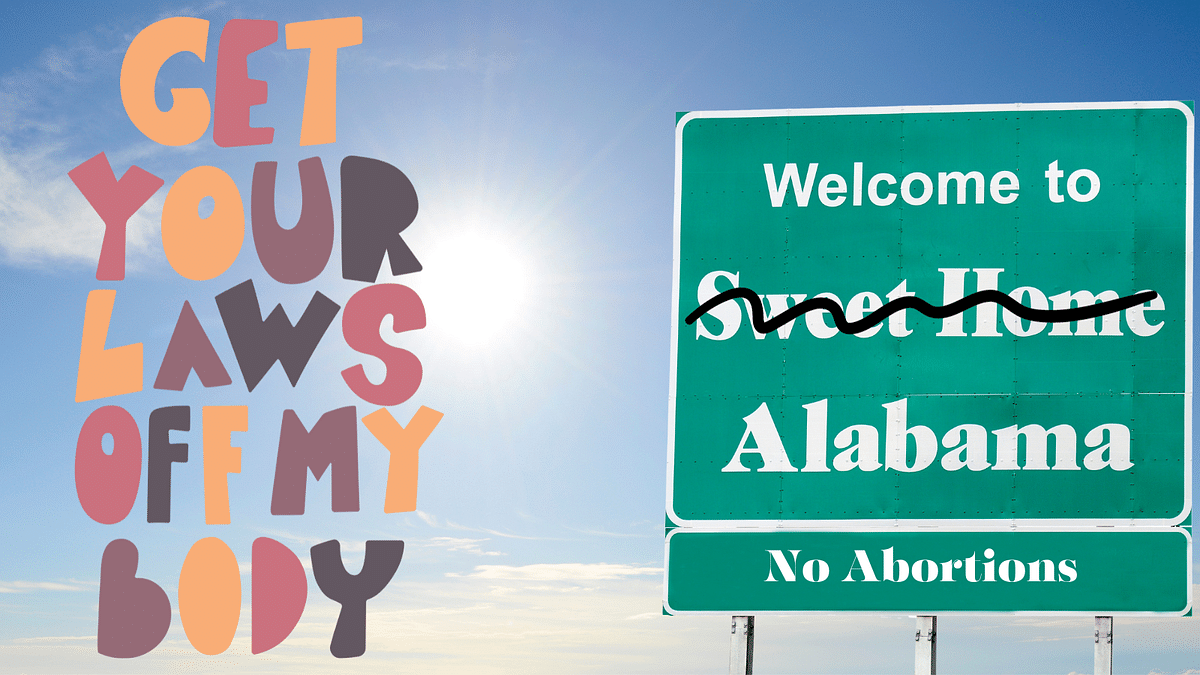
ALABAMA ABORTION BAN
Abortion in Alabama is illegal except when the life of the mother is in danger. This is due to the Alabama abortion trigger law that went into effect on June 24, 2022, following the U.S. Supreme Court's decision to overturn Roe v. Wade.
Prior to the overturning of Roe v. Wade, Alabama already had some of the strictest abortion laws in the nation. Abortion in Alabama was illegal after 20 weeks of pregnancy, and there were no exceptions for rape or incest. There were also mandatory waiting periods and counseling requirements for patients seeking abortions.
The trigger law that is currently in effect in Alabama goes even further, banning abortion altogether except when the life of the mother is in danger. And of course the law still makes no exceptions for rape or incest.
TRAVEL BANS FOR ABORTION
Abortion providers in Alabama have been forced to stop providing services due to the trigger law. This means that pregnant people in Alabama who need or want an abortion must travel out of state to obtain one.
There is no evidence yet that people are being stopped at the border of Alabama to stop them from getting abortions out of state. However, there is concern that travel bans for abortion could happen in the future.
In August 2022, Alabama Attorney General Steve Marshall said that the state could prosecute people who help others travel out of state to get abortions, arguing that the assistance could be considered a criminal conspiracy.
Marshall's statement has been criticized by abortion rights advocates, who say that it is a chilling effect on people who are trying to help others access abortion care. There is absolutely no legal precedent for prosecuting people for helping others travel to another state for a legal medical procedure.
The Supreme Court has ruled that people do currently have the right to travel to another state to obtain an abortion. However, it is not beyond the realm of possibility that Alabama or another state could try to challenge this ruling in the future.
Meidas Touch (a liberal PAC formed in March 2020 with the purpose to stop the reelection of Donald Trump in the 2020 United States presidential election) released a terrifying reminder of this potential scenario in May 2022, and it no longer comes off as hyperbolic:
PERIOD TRACKING APPS AND ABORTION
Another concern for people with uteruses is the potential forced use of period trackers: apps or devices that help people track their menstrual cycles, which can be useful in predicting when a person's next period will start, as well as to track (and thus predict) ovulation and fertility. Period trackers can also be used to track and predict menstrual symptoms, such as mood swings, cramps, and bloating.
There is no current legislation in Alabama to force its womb-bearing citizens to use period trackers. However, there have been some proposals to require them to use period trackers in order to obtain contraception or abortion services.
In 2021, a bill was introduced in the Alabama House of Representatives that would have required those who menstruate to use a period tracker app and to provide their period tracking data to the state government in order to obtain contraception.
The bill was ultimately killed in committee, but it raised concerns about the potential for the government to use period tracking data to track and monitor the bodily functions of Americans.
In 2022, another bill was introduced in the Alabama House of Representatives that would have required those with periods to use a period tracker app, and to provide their period tracking data, in order to obtain an abortion.
This bill, too, was killed in committee, but it raised similar concerns about the potential for the government to use period tracking data to track and monitor a large portion of Alabama’s population.
HUMAN RIGHTS AND ABORTION
Alabama's abortion ban places reproductive rights in serious doubt, and is a massive violation of human rights.
It denies pregnant people the right to bodily autonomy, the right to make their own decisions about their bodies and their lives.
It also violates the right to health, making it difficult for people to access the healthcare they need.
Further, it violates the right to non-discrimination, as abortion bans disproportionately impact marginalized groups, such as low-income people, people of color, and people living in rural areas.
Finally, it violates the right to privacy. Abortion bans require the government to intervene unnecessarily in people's personal lives.
If you are pregnant in Alabama and need or want an abortion, you have the right to travel to another state to obtain one. Don’t let a lack of abortion access stop you from getting the help you deserve. There are a number of organizations that can help you with travel arrangements, financial assistance, and other logistical needs.





